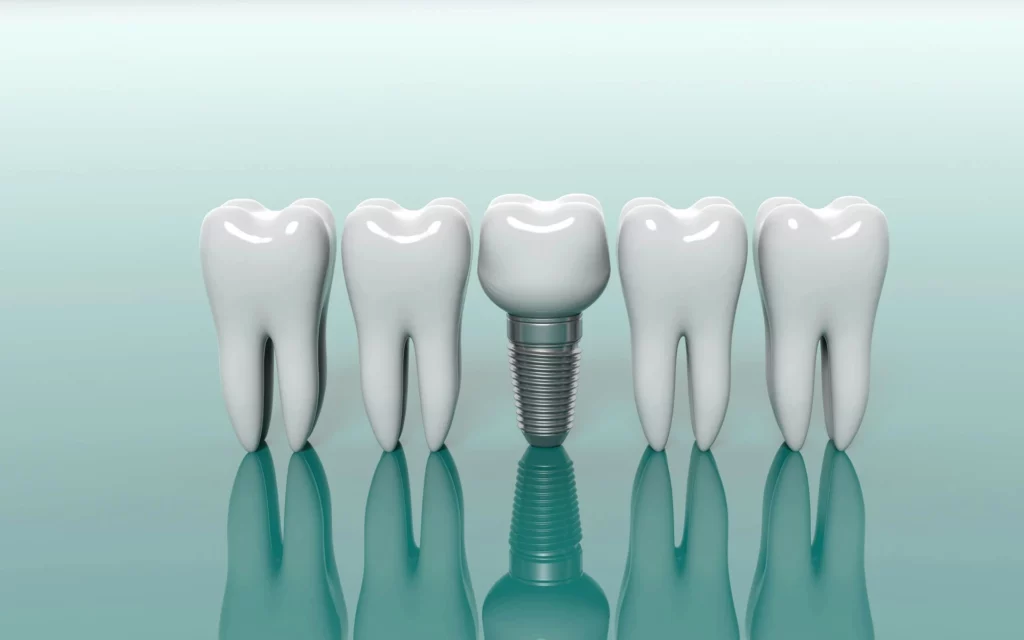Missing teeth can significantly impact an individual’s quality of life, affecting their ability to chew, speak comfortably, and maintain self-confidence. Fortunately, advances in dental technology have brought forth solutions such as full arch dental implants, which provide a durable and natural-looking option for those seeking to replace multiple missing teeth. With full arch implants, patients can regain the function and aesthetics of their smile, effectively improving their overall oral health and well-being.
Full arch dental implants include a series of dental implant posts and a custom-made prosthetic bridge that replaces an entire upper or lower arch of teeth. The implant posts, made from biocompatible materials such as titanium, are surgically placed into the jawbone to fuse with bone tissue and provide a stable foundation for the prosthetic teeth.
In this comprehensive guide to full arch dental implants, we will discuss the benefits, the procedure, candidacy, and proper maintenance. We will also compare full arch implants with alternative tooth replacement options, clarifying why full arch dental implants may be the optimal choice for those seeking a lasting solution to their dental woes.
The Benefits of Full Arch Dental Implants
Full arch dental implants provide a host of advantages when compared to traditional tooth replacement options. Some of the key benefits include:
- Aesthetics and Function: Full arch implants offer a natural-looking and functioning solution, allowing patients to chew, speak, and smile with confidence.
- Durability and Longevity: With proper care, dental implants can last a lifetime, making them a cost-effective option in the long run.
- Bone Preservation: By replacing the tooth root, dental implants stimulate and maintain the surrounding jawbone, preventing bone loss often associated with missing teeth.
- Improved Oral Health: Full arch dental implants do not require grinding down adjacent teeth, as with traditional dental bridges, leaving more of your natural teeth intact.
The Full Arch Implant Procedure
The process of receiving full arch dental implants involves multiple steps and may take place over several months. The three main stages are:
- Consultation and Planning: The initial consultation includes a thorough evaluation of your dental and overall health, diagnostic imaging, and a discussion of treatment options. The periodontist will then create a customized treatment plan tailored to your specific needs.
- Surgical Placement: During the surgical procedure, the periodontist places the dental implant posts into the jawbone. Once placed, healing and osseointegration (the process by which the implant fuses with the bone) can take three to six months.
- Prosthetic Restoration: After osseointegration, your dentist will attach an abutment to the implant and take impressions to create your custom prosthetic teeth. Once your new teeth are fabricated, they are securely attached to the abutments, completing your full arch restoration.
Considering Candidacy for Full Arch Dental Implants
Ideal candidates for full arch dental implants should meet the following criteria:
- Sufficient Jawbone Density: Adequate bone density is required to support dental implants. If you have experienced bone loss, additional bone grafting procedures may be necessary before implant placement.
- Good Overall Health: Patients should be in good health, with no medical conditions that could impede healing or increase the risk of complications.
- Commitment to Oral Hygiene: Proper oral care and maintenance are essential to ensure the success of dental implants.
- Non-Smoker: Smoking significantly increases the risk of dental implant failure. Patients should quit or substantially reduce smoking habits before undergoing implant treatment.
Full Arch Dental Implants vs. Alternative Tooth Replacement Options
Full arch dental implants provide unique advantages when compared to traditional tooth replacement options like dentures and dental bridges:
- Dentures: While conventional dentures may cost less initially, they may need periodic replacements and adjustments – adding to the overall expense. Furthermore, dentures do not support jawbone health, often resulting in further bone loss. Full arch dental implants, conversely, offer stability, longevity, and bone preservation.
- Dental Bridges: Conventional bridges require grinding down adjacent healthy teeth, posing potential damage to those teeth. Full arch implants eliminate the need for altering neighboring teeth, preserving your natural dental structures.
Caring for Your Full Arch Dental Implants
Proper care is essential to ensure the longevity and success of your full arch dental implants. Follow these simple guidelines to maintain your new teeth:
- Daily Oral Hygiene: Brush and floss your dental implants just like natural teeth. This daily oral care routine helps prevent the build-up of plaque and bacteria.
- Regular Dental Check-Ups: Schedule routine dental check-ups and cleanings, usually every six months, to allow for early detection and treatment of any potential issues.
- Avoid Hard Foods: While dental implants are strong, they are not indestructible. Avoid biting on hard foods or objects such as ice, hard candies, or pens.
- Cease Tobacco Usage: Tobacco use increases the risk of complications and implant failure. Quit smoking or significantly reduce your tobacco intake to ensure optimal implant success.
Revitalize Your Smile with Full Arch Dental Implants
Full arch dental implants can revolutionize your life by restoring the function and aesthetics of your smile. With their natural appearance, durability, and support for jawbone health, full arch implants are an optimal choice for many patients seeking a lasting solution for multiple missing teeth.
If you are considering full arch dental implants or wish to explore your tooth replacement options, schedule a consultation with our knowledgeable team at Dallas Periodontics and Dental Implants. Together, we can create a personalized treatment plan designed to give you the smile you’ve always dreamt of.

